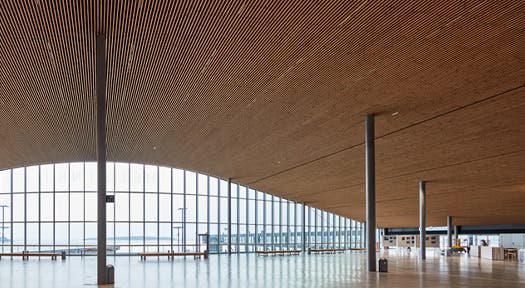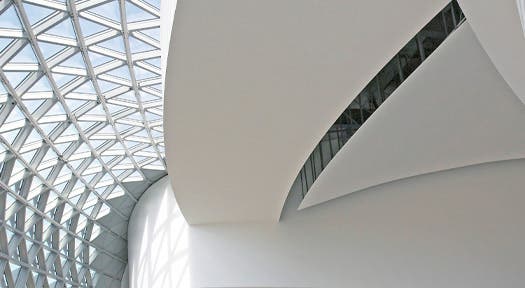Advantages of Drywall over Brick wall in Fire Resistance Duration
Making plans on erecting an elegant structure is almost as hard as setting the structure up. How's that? To construct a building, you'll be presented with many different options and it's hard to pick the best.
In any case, the decision-making process is always the hardest. When thinking about the materials to use in constructing a building, two options are available. You can either use brick walls or drywalls to erect an elegant building.
The brick wall is commonly used worldwide and they undoubtedly enhance the aesthetics of a building. That is to say that brick walls are not a bad option.
The second option you have is to use drywall. The drywall option is not a popular concept among laymen, but professional architects do not find this term strange.
Although both of them are very good building materials, one of them seems to be a better option with more advantages than the other and that's drywall.
So, what is drywall?
A drywall is a board or panel that's made of gypsum {calcium sulfate dihydrate} with or without extra elements held together by two sheets of facer and backer paper.
Wallboard, sheetrock, gypsum board, buster board, custard board, and gypsum panel all mean the same thing as drywall. Drywall is commonly used in the interior construction of buildings.
It has distinct qualities that set it apart from traditional brick walls. It has non-combustible properties, reduces mildew, and absorbs water.
Below you'll find reasons why people tend to choose drywalls over the traditional brick walls these days.
Advantages of Drywall over Brick wall
1. Versatile and Attractive
Drywall has this versatility about them in the sense that it can fit anywhere. It can be bent, molded, and curved to fit into any shape and size.
Unlike brick walls, drywall is easy to fit in any part of the building. Drywalls are not only versatile, but they're also attractive thereby increasing the aesthetic of the building.
That's why they're mainly used for the interior construction of buildings because of their overall smooth and stylish appearance. Even though drywall beautifies the interior of your home, you're still at liberty to paint over it if you so wish.
Also, drywalls do not require a high level of skill and professionalism to achieve perfection. Its easy installation method makes it highly sought after in the construction industry.
2. Faster Construction
One of the major reasons why the drywall option remains the most preferred is that they're easy to install.
With drywalls, nobody has to exert extreme physical strength to get the job done. Also, you can cut down on the labor cost of employing more laborers to install the drywall.
Sometimes, brick wall construction can be time-consuming seeing as the building project runs for months. It's a different case entirely with drywall because they can be installed properly within weeks.
Drywalls do not require messy mixtures of sand, cement, and water. Aside from the fact that this whole process is time-consuming, you don't need to go through this rigorous process to install drywall.
The fast construction of a building with drywall gives enough time for proper planning and managing. It also helps contractors to round up their tasks on or before the set time. It saves the house owner from undue costs due to prolonged work time.
3. Fire Resistance
Above all other reasons, this should be the most important reason why drywalls are the most sought after.
Brick walls do not stand a chance of withstanding fire for as long as drywall can.
In the case of a fire outbreak, drywall can contain the fire from spreading to other parts of the building for four hours.
This leaves enough time to evacuate the building and salvage important documents and properties.
Drywall is constituted mainly of gypsum which has fire resistance characteristics. To ensure that your properties and documents are safe when there's a fire, installing drywall in your home is the best option.
4. Moisture and Water-Resistance
When you install drywall in your home, you don't have to struggle with damp walls anymore. Drywalls have water resistance characteristics; they're designed to absorb water without it affecting its original function.
There's almost nothing you can do when you experience damp walls, however, you can avoid the experience by installing drywall.
5. Sound Resistance Interior
One of the downsides of living in urban areas is the noise that never seems to stop. Too many industries and companies produce too much noise and there's almost nothing that can be done about it.
Noise pollution is as harmful as other types of pollution that are essential to shield yourself and your family from the effects. There's one way to achieve this, and that's installing drywall.
Drywall construction can help to dampen the noise from outside. Drywalls are designed with 66 decibels and up to 78 decibels {superior acoustics} which is enough to resist external sounds in your home.
6. Cost-effective
Drywall is faster to install and it doesn't require that you break the bank trying to install it, instead, it's the other way around.
Drywall construction doesn't require too many people to get the job done unlike with brick walls. That means the labor cost will reduce drastically and the cost of purchasing additional building materials.
More so, it's relatively easy to repair; you don't need to break down walls or cause a nuisance to fix damaged drywall. It's so simple that you can fix the damage on your own

7. Energy Efficient
Drywall is resistant to many things including heat. It's designed with thermal insulation that keeps the house at a bearable temperature. Installing drywall is a good way to maintain the energy efficiency of your home.
By installing drywall in your home, you don't have to invest in installing other equipment to maintain room temperature.
8. An Environmentally-friendly Option
Generally, drywall is beneficial to both individuals and the environment at large. Drywall is environmentally friendly in the sense that it's recyclable and easy to install.
Without wasting water to mix sand and cement, installing drywall saves water to be used for other things in the environment. Also, you can install drywall without polluting the environment with noise.
On a final note;
Before embarking on a building project, a lot of planning has been made. Plans on what materials to use and how to go about the entire construction process. If drywall installation is not part of the plan, then the plan has to be updated.
The possibility of a fire outbreak cannot be ruled out because all too often, fire outbreaks are usually accidents. It's best to guide against the severe impact of fire during construction.
Using brick walls for construction is not a bad idea, but choosing drywall as the best option will pay off in the long run.
Installing drywall is one thing and using the best product is another different thing. To get the best result from installing drywall on your home, USG Middle East W11-Corridor Wall-Impact Resistant 2hrs Fire-Rated With Fiberock is a good material to try out
In summary, before choosing the type of brick you want for your home, think about the long-term benefits and choose drywall.










